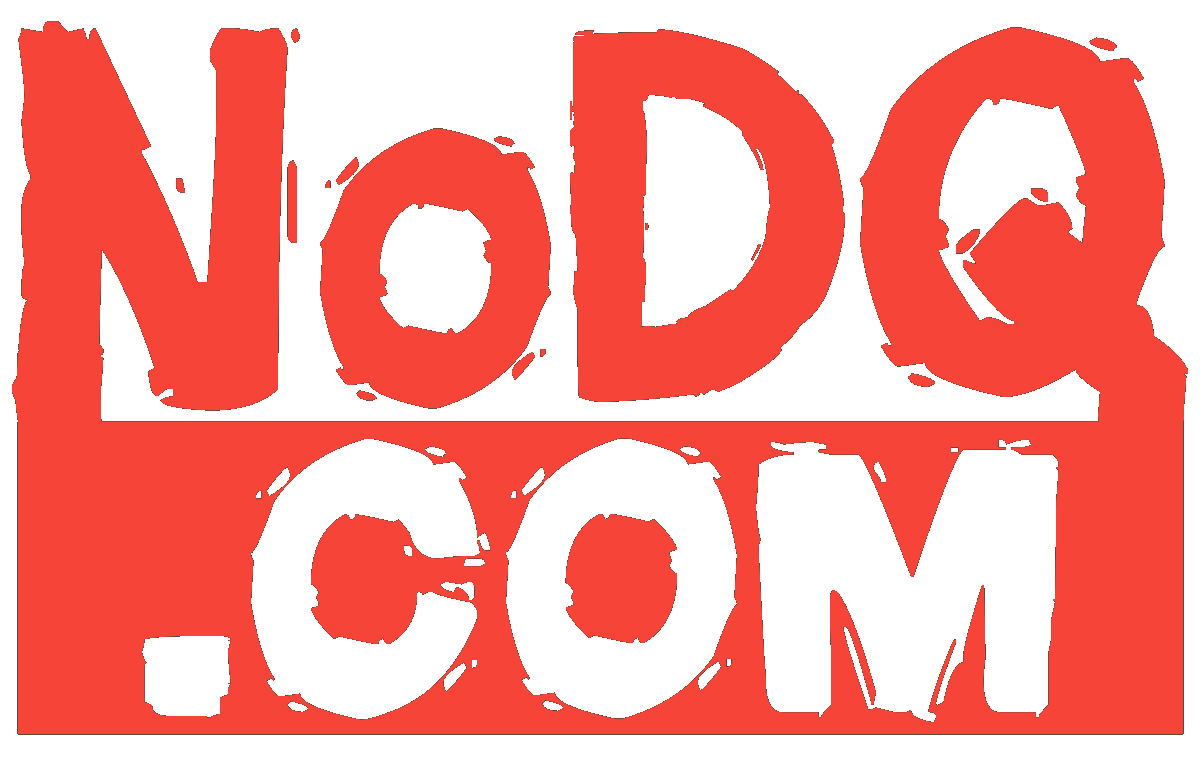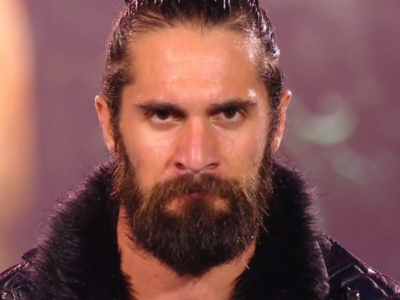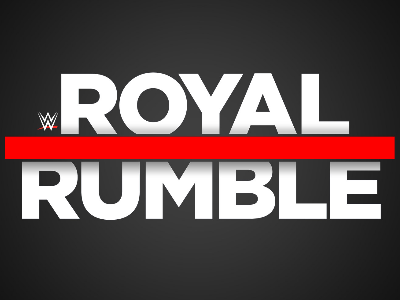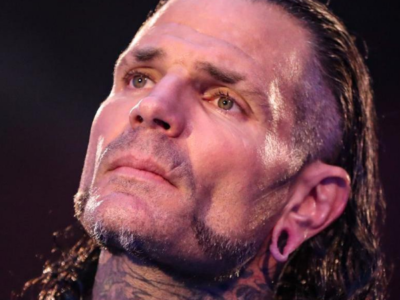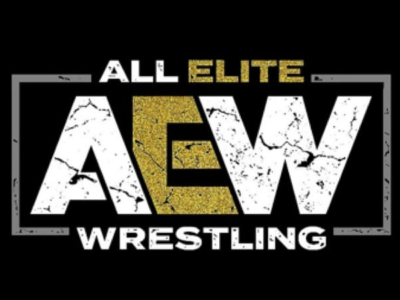Five reasons why AEW is NOT the future of wrestling – Part 2
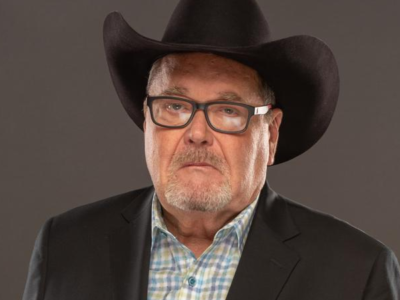
Welcome to the second installment of my ongoing columns about the major issues and problems All Elite Wrestling has faced during its 4-year existence – and is still facing as we speak today. These five reasons are – in my opinion – directly responsible for the company’s growth being stunted, despite some remarkable achievements in their formative years that need to be acknowledged, even by the most unforgiving wrestling pundits on the world wide web. Although AEW can still be considered relatively successful for all intents and purposes, during this past year the company has cleary entered a down period in terms of viewership and live attendance numbers, which is in line with general market trends, but in contrary to the resurgence that market leader and AEW’s chief competitor WWE has produced.
In the first part of the series, which you can read HERE, if you missed it, I singled out AEW’s issues with weak and sometimes dysfunctional (albeit in the case of Tony Khan, well-meaning) leadership and a questionable backstage hierarchy as one of the issues they have yet to solve. Today I’m taking a long hard look at how AEW failed to embrace and appreciate the established know-how of the business, while trying to carve its own path on the market and how this could have been done differently to achieve an even greater success and create a more coherent, more streamlined product in general.
REASON 2: IGNORING KNOW-HOW
What can you do, when you are facing challenges that you don’t have enough knowledge and experience to overcome yourself, but you need to succeed anyway? The answer is simple: you ask people for help, who already possess the neccessary know-how and then you learn from them. Developing oneself is an important quality, but there are some things you simply cannot learn on your own, or when the stakes get higher, you just realize that in real life and business, some stuff is totally NOT how you imagined it in the safety of your room.
I personally think that a good modern leader doesn’t need to be a dictator, who rules with an iron fist, insists on micromanaging all the departments, and tries to center everything around himself. He/she also doesn’t need to be an all-around genius of the craft. Quality leaders are great judges of character, they have strong man management skills, they are able to think and work in a system, oversee certain processes and manage priorities. They also delegate tasks well among their crew and only take the lion’s share in their own specialized area of expertise.
The difference between oldschool and modern leaders can easily be demonstrated through the attitudes of Vince McMahon and Triple H in WWE, but different philosophies are actually gaining ground in the world of sports as well, and there are places where the two styles of leadership can also co-exist. Fans of Formula One (or Drive to Survive) probably know what I mean when I cite the team of Christian Horner and Helmut Marko at Red Bull Racing as examples, and years before, Mercedes GP also used a similar duo in Toto Wolff and Niki Lauda.
You don’t need to be great at everything to be a good leader, and force the whole machine to submit to your will, but you do need the ability to make firm and important decisions and handle your human resources well. In AEW’s case, this would mean that Tony Khan, his staff and his wrestlers should indeed pay attention to those who are smarter than them, either take their advice at face value – or at the very least, consider it, and use their relevant practical knowledge and know-how when making decisions about the product.
In the first part of my series, I mentioned that AEW trusted people with creating the product and managing the locker room, who didn’t have experience in those things, and even if they did, they didn’t gain those experiences at a level that a company of this magnitude required. There is a huge gap between the worlds of smaller, independent promotions (especially their production values) and the minimal requirements and expectations that a national TV show has. The same gap exists, if you come from a locker room where you work for a symbolic amount of money for a couple dozen or couple hundred people and maybe get a slice of pizza as catering – and then you end up in a big arena, in front of television cameras, you suddenly make a good living and a lot of cold hard money depends on your current roster position.
For a higher level of production values and for a locker room that levels up in terms of professionalism, you need professional people to run both, who are able to manage these things. To AEW’s credit, they have been attempting to improve on many areas. They were able to sign a TV director/producer with major experience in WWE, where he was originally hailed as a possible successor for Kevin Dunn. A little while ago they signed a PR professional, who also spent 25 years at the market leader and I’m certain that these additions will make a huge difference in the long run, but there is a certain area where I see no signs of appreciating the established know-how: the CRAFT itself.
The worst thing is that realistically this shouldn’t be happening. AEW has kept lots of veterans on the payroll, in many different roles, who spent decades near the very top of the business and know the book of professional wrestling by heart. I’m just going to mention a couple of them, but on the top of the list, is without a doubt Jim Ross.
Yes, Jim Ross currently is a rather unreliable announcer who is sometimes ignorant of the very product he calls, or tries too hard to cope, mostly lives off his past prestige and fame, and whose commentary style cannot really keep pace with modern wrestling. But besides that, he is a person who has worked in the business since 1974 (that’s nearly FIVE decades) and did absolutely everything there is to do. Most people know him as an announcer, where he made his name primarily through his astonishing ability to create memorable moments with his voice and tirelessly putting over every single deserving wrestler whose matches he called. However, he also has decades of experience in the office, he was a member of booking committees, he was very successful in leading the talent relations division of WWE and knows the psychology of wrestling in and out.
He worked with way bigger stars and way bigger egos in the past, compared to today’s locker rooms, AND he also managed to handle those people and egos. He knows exactly what is MONEY in the business and what is just STUPID. That’s in clear view when we actually listen to the barely concealed shots he takes at the product behind the mic, if he has issues with something, or listen to him on his podcast ’Grilling JR’. He said it himself that that he often took his problems regarding the use of in-ring psychology and talent to management and the wrestlers themselves, who listened respectfully, but nothing ever changed. Even if he didn’t want to work full-time in the office, his expertise deserves way more than that. Considering how little AEW listened to him, he still invests in it way harder than he probably should at his age, with all his health issues.
Or I could also name William Regal, who only spent less than a year in AEW. Regal has been one of the key members of Triple H’s trusted NXT staff from the start, whose area of expertise is global scouting and talent development. He was looking for potential upstarts worldwide, to the extent that he had been up-to-date on the more well-travelled wrestlers of my Budapest-based, Middle European indy promotion and I’ve personally seen a text message he sent to a visiting English promoter, instructing him which Hungarian talents to watch on that evening’s show. He also knows every in and out of in-ring mechanics (if you have issues with your footwork, he is your guy) and is a first-class perfomer who knows all the tricks in the book, having mentored people like Triple H himself, or Bryan Danielson for that matter. Regal does a strong promo, but I sincerely doubt that there was no better use for him in AEW than being the manager of BCC. If we are to believe certain sources, him and Danielson regularly took to the ring before tapings to help other wrestlers with their craft. I certainly hope that this very same report did in fact lie about the amount of people who were interested, because it was a very small number.
There is Arn Anderson, who was a true master of the ring back in the day and worked with WWE’s top superstars for decades, helping them put together their matches as an agent. What is he doing again, besides slinging his favorite Glock? They also have Jeff Jarrett, who comes from a wrestling family, has experience as a booker and promoter, and at the age of 55, the very first idea was to put him in the ring (although he has started working backstage since). AEW has Samoa Joe, whose background is in modern wrestling, he proved himself as an announcer on the highest level, and Triple H fought hard to resign him after his original release, as he wanted Joe in his coaching-scouting team because of his wrestling mind. He is actually working in Ring of Honor (and sometimes on Collision) right now, for absolutely no good reason. Chris Jericho, when he actually had to answer to his bosses, managed to teach AJ Styles how to work in the WWE system on LIVE freaking TV.
There may be others, but please don’t tell me that this many experienced people don’t have the brains to teach the young wrestlers to actually work in a sensible way and help the new-age management to book and treat the human resources in a sensible way. Why isn’t that know-how exploited? Or worse, if it is, why doesn’t it show?
It’s also no secret that before AEW started, Tony Khan had talked to another great wrestling mind of the business, trying to secure Jim Cornette’s help for the project, but Corny (who hates travelling anyway) declined when he heard the names of core talent Tony was about to work with. However, he supposedly gave advice to the young promoter (and is still doing so, free of charge, in his podcast, if you can seperate it from all the colorful rants and insults that are his bread and butter). Yes, Cornette is very much oldschool, and in certain areas (like women’s wrestling or creating melodrama for TV) his approach seems both obnoxious and brutally outdated, but I’ve heard very few people in the business, who are able to precisely (and wittily) deduct why a certain match or angle works or not, and if not, what should you do differently. Not to mention, he actually does that off the top of his damn head.
Many people like to argue these points, saying that professional wrestling has changed too much since the days of those veterans, they are unable to keep pace with it or adapt to it and don’t really understand the needs of modern wrestling. I have very bad news for them. In terms of its basic goals, professional wrestling has not changed ANYTHING in decades! Of course, people wrestle differently now, the general style has become faster and more athletic, while the toolkit for doing promos and storytelling itself has evolved, but what you need to achieve with those things is the same it has ever been.
It’s just like football and soccer getting faster in pace, new tactical methods have evolved, new analytical systems are being put in use and they have video assistant referees now, but the point of the game is still to score more than the opposing team. In Formula One, cars and rules change every year, but the point of motor racing is still to cross the finish line first after doing so many laps. Theatre, music and movies are all embracing new methods and techniques now, but actors, writers, directors and singers still want the same thing: to evoke a reaction from the audience and make them feel a certain way, so that hopefully they will be willing to pay for their product. Wrestling, as a form of storytelling art, is just the same. The ’how’ changes all the time, but the ’what’ never does.
I want to make something very clear: I am in no way advocating that veteran staff members should be given free rein over the product, because then we get the very worst of Vince McMahon’s later years, or Bill Watts in WCW, or Verne Gagne in the dying days of the AWA. The final power of executive decision making should NOT be in their hands. But giving them on-screen roles with no actual influence or a strong input, or using them as coaches or consultants who have about as much say in reality as mere figureheads do, is not the way to go, either. The veterans shouldn’t lead, they should report back directly to Tony Khan, mentor and consult – but all the mentoring and consulting they do should be taken VERY seriously by everybody involved, because they possess knowledge about the business that worked 20-40-60 years ago and STILL works today.
WWE managed to resolve these issues by appointing younger people as agents or trainers. The current crew of producers are all between the ages of 34-49 (with the sole exception of 64-year old Michael Hayes, who only ever works the major storyline-based main events now), meaning they are very well socialized in the modern ways of wrestling, and yet they do not try to reinvent the wheel in that company, but rather adapt and translate everything they learned from the veterans in a way that it will be applicable in the modern world.
In AEW, all this know-how is seemingly lost in translation. They not only don’t listen to the veterans, but don’t even have the intermediaries who would translate the actual knowledge with longevity to the language of the young lions and then require them to apply what they learned (as entertaining as he is, appointing Orange Cassidy as a coach probably doesn’t help this). When Tony Khan had to choose who to employ as leaders, helpers or advisors, he chose a group of EVP-s, who – with the sole exception of Cody Rhodes – didn’t have any major experience regarding the American mainstream scene, or even the workings of national television. When he needed help with the creative, he turned to people like QT Marshall, who might be a good trainer, but has absolutely nothing to do with creative or mainstream wrestling in general. Recently, he hired Will Washington straight from the wrestling press and podcasting world, who also lacks any notable experience on the field. They might be okay, but we do need some quality control.
I could talk in detail about the so-called coaches as well, but I’d rather not. Because when I see that people like Brian Kendrick, Drew Gulak, Shane Helms or the nearly 70-year old trainer Rip Rogers are able to work with celebrities for a couple of weeks, and the Logan Pauls, the Bad Bunnys and the Pat McAfees who have never, ever pursued wrestling as their actual livelihoods in the past, become perfectly acceptable wrestlers under their guidence, who don’t flop at the very basics of the game, while in AEW some people on the roster still have issues with properly delivering a worked punch after nearly four years of performing in primetime, I honestly don’t know what else there is to say.
A part of ignoring the know-how is also Tony Khan publicly turning into a petulant child, whenever somebody is criticizing him or his product. A harsh, yet honest is critique against AEW is equivalent to an ill-intentioned personal attack. However, those who tell him what he wants to hear, and who call AEW the best thing since sliced bread, get treated like royalty at the ’press scrums’ or wherever. I’m sorry, Tony, but if you’re looking for knowledge and experience, Dave Meltzer is not the guy to tell you whether you are doing something right or wrong.
Dave Meltzer is a great historian, a reporter who pretty much created an entire genre, the elder statesman of all kibitzers, but rarely (if ever) did he report on the business in an objective and rational manner. His personal tastes have always dictated his stance, he did not work in the business for a single day, didn’t feel the reality of the business on his skin and did not shoulder the burden of the need to produce results in practice. When one finally does, it usually changes him/her. Some of the most popular European smark-influencers come to mind, who ended up founding What Culture Pro Wrestling in the UK and after spending some time in the game, those involved now talk very differently in the videos of Cultaholic. I wouldn’t be writing this article myself, if I hadn’t spent 12 long years with Hungarian Championship Wrestling. Because on the inside this business is not like you imagine it from the couch. Far from it.
If a promotion’s leadership and talent don’t have the drive to change, improve and accept some everlasting advice about the nature of the beast, if they only trust themselves, believe they know everything better and they are the true misunderstood geniuses of our age, then said promotion will remain stuck at a certain level and will never be able to step out of its own shadow. At the end of the day, we will only get the question: what if? You may consider yourself to be a natural-born innovator like Nikola Tesla, who shall also have the financial success of Elon Musk – but in the end, that just makes you a jerk like Musk and you will have about the financial success of Tesla.
* * *
This wraps up the second article of the series, but I shall be back soon with Episode 3. I personally believe that this next part will perhaps be the most controversial piece of the argument and that it will be a very hard pill to swallow to many AEW fans. In that article I will talk about how booking in a bubble and presenting a deliberate niche product is hurting AEW’s chances of succeeding with larger audiences and in doing so, I shall take a deep dive into what the whole point of professional wrestling actually is and is not. It’s an argument that I’ve had several times with some of my own peers in my own country and I do hope I can present it in a way that will make sense for you all – even if you disagree with my points.
